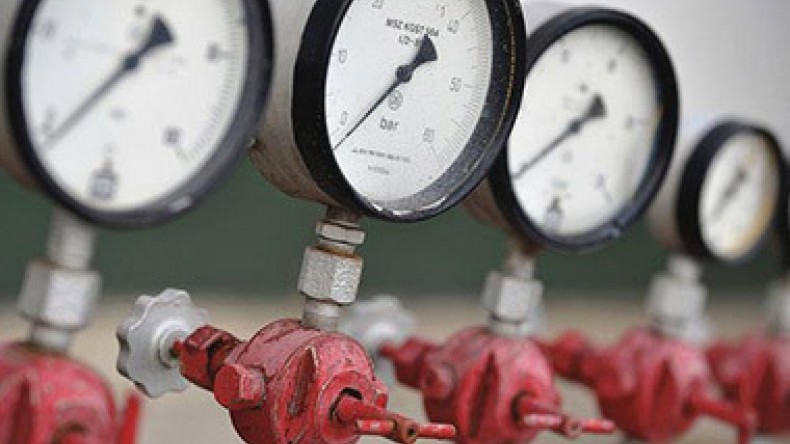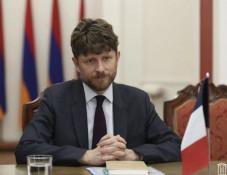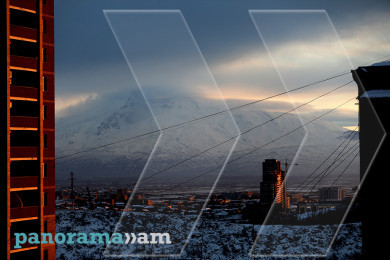
Robert Cutler: Russia's South Stream project will seek to minimize volumes of Azerbaijani gas to Southeast Europe
Panorama.am presents an exclusive interview with Dr. Robert Cutler, Lead Analyst for wikistrat.com, expert on energy security, Russia, the South Caucasus and other regions. Dr. Cutler comments on Azerbaijani energy projects with Europe and on the Nagorno-Karabakh conflict.
- Dr. Cutler, on Dec. 17 shareholders of Shah Deniz agreed to invest an additional 25 billion dollars towards the development of Shah Deniz-2 project to transfer additional gas to Europe. How big is the actual economic importance of Shah Deniz 2 for Europe? To what extent is it a means of exercising pressure on Russia and countering the South Stream?
- Shah Deniz Two is not a means of countering South Stream. Rather, South Stream (announced in 2007) was a means of countering the original Nabucco pipeline (joint venture agreement signed in 2005). The idea was to make Nabucco unnecessary, and in particular to prevent the eventual construction of a Trans-Caspian Gas Pipeline (TCGP) from Turkmenistan to Azerbaijan, because from Azerbaijan that gas could go across Turkey into Europe. Both Nabucco and South Stream were conceived before the large discoveries of natural gas in the offshore from Azerbaijan over the last decade.
Russia had employed a similar geopolitical strategy, with success, already once in the late 1990s. At that time the first efforts were made, by U.S. companies during Niyazov's presidency of Turkmenistan, to promote negotiation and construction of a TCGP. Russia countered with the proposal to Turkey for the Blue Stream pipeline, which was successfully negotiated and constructed. It operates today, but has never operated at planned capacity and never in an economical way. It would be correct to say that the Blue Stream pipeline was not so much the project of two governments, as it was the project of two groups of economic interests around the political leaders of the respective national energy ministries.
The long-planned Shah Deniz Two development was continually postponed because of the absence of supply and purchase contracts for the gas to be produced. The Nabucco pipeline has in the meantime been replaced by the Trans-Anatolian Gas Pipeline (usually called by its Turkish initials, TANAP) and the Trans-Adriatic Pipeline (across Greece and landing in southern Italy). However, it is not excluded that gas from Azerbaijan's offshore will eventually still find its way into Southeast Europe, where the original Nabucco was intended to run. The short pipeline Interconnector Turkey-Greece has been operating for some years, and it appears that the Interconnector Greece-Bulgaria will finally be built in the next few years. This would allow for the first time that Azerbaijani gas reaches the Balkans north of Greece, with the potential for being transmitted further into Southeast Europe if its volumes increase.
Shah Deniz Two is important to Europe for diversifying the sources of its energy supply. The EU imports slightly over half of its energy supply, including two-thirds of its natural gas. Natural gas represents one-quarter of the EU's primary energy supply, so imported natural gas represents one-sixth of EU energy consumption, although of course the proportion varies widely from country to country. The EU's gas consumption as a proportion of total energy is expected to rise to nearly one-third by the end of the next decade, when imports will rise to account for over three-quarters of gas consumption, equivalent to one-quarter of all EU energy consumption. So imported natural gas as a proportion of total energy consumption in the EU will increase by half over the next 15 years.
No matter how one looks at things, it is in the EU's interest to diversify the sources of its energy supply. The development of Shah Deniz Two has had this vocation since its conception. Russia's South Stream project was first designed to prevent trans-Caspian gas from flowing from Central Asia to Europe. It now will seek to minimize the volumes of Azerbaijani offshore gas to Southeast Europe, where Russian companies seek to maintain their overwhelming market share and the political influence that follows from that market dominance.
- What implications can a possible war in Nagorno-Karabakh have for Azerbaijani energy sector and economy? To what extent can this factor constitute a deterrent for militant Azerbaijan?
- It seems unlikely to me that there will be significant military hostilities in Mountainous Karabakh. In fact, the framework for resolving the conflict was more or less established at the 2001 Key West summit, and little has changed since then. Part of the reason is that the status quo makes it unnecessary to try to bridge the differences between the two sides. It is possible that political formulas could be found to resolve those differences, but in practice these differences are realistically unbridgeable. Moreover, there is no external pressure that can change either of their positions. At the same time, it must be recognized that the economic and political pressure from inside Azerbaijan against the regime's failure to change the situation on the ground, caused by the still large numbers of internally displaced persons who live in poor conditions and wish to return home, is a real and autonomous social force.
The recent escalation in clashes around Mountainous Karabkah does not make a renewal of the war an immediate prospect, but there is growing momentum towards some sort of open conflict. Yet the result of any new war would be potentially more destructive than the first, and its outcome would not be easy to predict.
- If the regional context changes in the South Caucasus can Armenia actually benefit from opened communication routes given the fact that the major pipelines and routes already constructed bypass Armenia?
- Yes, certainly. I learned at a conference that I attended last year in Turkey, that the Turkish foreign ministry has prepared elaborate and detailed proposals and projects that go in this sense. These projects focus not just on Armenia. They emphasize the economic cooperation of the three South Caucasus countries, including Armenia. Such trilateral cooperation is the pre-requisite for Armenia to benefit from the opened communication routes. And this is so, not only for Armenia but also for
Armenia's neighbors. It seems unlikely to me, that official Yerevan does not know about these proposals, and in detail.
- Under the circumstances of blockade in what ways should Armenia seek to boost her economic development?
- This is an extremely difficult question. Already under conditions of blockade, Armenia had limited its choice of cooperation partners to such countries as Russia and Iran. Now its choice against the European Union and in favor of Eurasian Customs Union (ECU) significantly limits the sources of assistance and investment for economic development. Yet the present situation permits the conclusion that such a limitation has not greatly benefited the national economy of the country. It would follow, that Armenia should seek other partners in order to diminish its dependence upon those two countries. European countries would have been good candidates but, as mentioned, the accession of Armenia to the ECU makes that rather less likely.
Nvard Chalikyan
Newsfeed
Videos






























